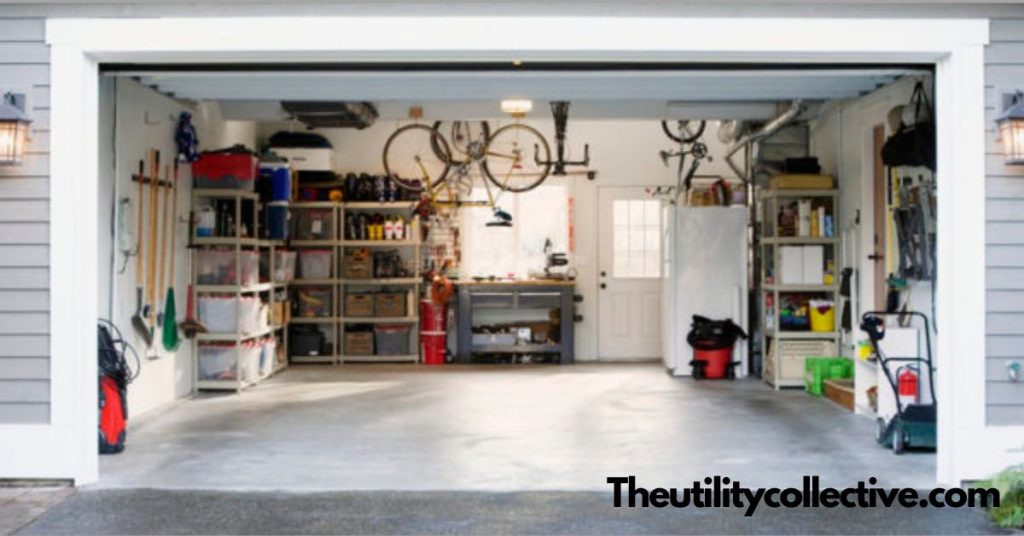Last Updated on December, 2024
When you first get into woodworking, your first instinct will be to go full steam ahead and set up a shop so you can actually get into the woodworking part.
Unfortunately, life isn’t as easy for a beginner woodworker as it is for a beginner knitter, let’s say.
Going to the local store and picking up some yarn and needles is easy peasy, but the same can’t be said about setting up a woodworking shop space.
If you’re a beginner woodworker, your best option is to rent a woodworking space.
Wondering why that’s the case?
Stick around in this corner of the internet to find out why you should rent woodworking space, what renting options you have, AND tips to help you rent the best possible place!
Contents
Why is Renting a Woodworking Shop Space the Best Option?

Unlike knitting, the initial capital investment needed to set up a woodworking shop space is pretty steep.
You’ll need to get a significant amount of space and purchase equipment, tools and materials.
And this can be extremely difficult if, even though you have a passion for woodworking, you don’t have the budget of Elon Musk.
Renting a woodworking space allows you to cut down on costs significantly, and it’s not as risky.
But there are a lot of things that you need to consider before renting a space.
For example, you can take many different approaches to renting, and we’ll be covering all of these in just a bit.
Plus, you need to make time to assess and find an ideal location, ensure that the terms of the lease don’t leave you in the dust, not get scammed, etc.
There are a TON of concerns when starting with woodwork.
But don’t fret because, by the end of this article, you’ll know precisely how to rent woodworking space.
Renting Options

First, let’s look at all the renting options available to you.
Rent a Shop Space
Your first possible option is to rent shop space and set up your workspace there instead of buying a shop.
While this is cheaper than buying the space, it is still costly since you need your own machines, tools and equipment.
To reduce costs, you can form a group with similar aspiring woodworkers, set up shop together and spread the costs equally.
Find a Fully Set Up Space
If you don’t want to purchase your machinery and equipment, you can go for this option, which is to buy space in an already set up workspace.
This will be cheaper than purchasing all the necessary equipment on your own.
Find a Woodworking Club
Don’t like either of the first two options?
No problem, you can instead try looking for a woodworking club.
Woodworking clubs will have fully set up workshops that members can use for a fee. You can purchase machine time for particular hours every week, and this option is much cheaper than the other two and poses less risk.
So, it’s great for beginners!
Find a Woodworking Workshop
Similar to your last option, you can also look for woodworking workshops that allow woodworkers to purchase bench space and machine time for a certain fee.
Pros and Cons of Renting Your Own Shop
Renting your own shop space (as in the first two options) have the following pros and cons.
- When you rent your own woodworking shop, you are your own boss, and you have complete freedom as opposed to when you have to share a space with a bunch of other people.
- You can work on your own time and don’t have to wait for a turn at the various equipment and machinery.
- However, this freedom comes at a cost because renting your own shop can be more costly and risky.
- And if you take it upon yourself to buy your own machinery and equipment, you may have to settle for lower-quality ones to fit your budget.
Pros and Cons of Renting Space From a Club/Workshop
These are the pros and cons of renting space/ machine time from a woodworking club or workshop.
- When you share a workspace, you meet and interact with other woodworkers of varying expertise.
- This is great for beginner woodworkers because you can get advice, moral support and general companionship from people who know exactly what you’re talking about.
- In a woodworking workshop, you may even be able to get some work from other woodworkers- if they have extra work and like your craftsmanship, that is.
- Additionally, this is much less costly than purchasing or even renting your own space and a lot less risky.
- You won’t have complete freedom when you’re working with other people.
- You may not be able to work whenever you want, and you may also have to wait a while to access machinery and equipment.
- However, this is not a very significant blow to a beginner.
- Once you gain enough experience and perhaps start generating revenue, you can invest in your own woodworking shop.
Tips to Help You Find a Good Woodworking Shop Rental

Network
When you’re trying to find a suitable rental, you must network.
Join your Chamber of Commerce (most cities have one) and other merchants’ associations in your town.
People experienced in the field can then tell you what spaces are available, who’s good to work with, who to avoid, etc.
And, of course, if you’re looking to join a woodworking club or workshop, it’s essential to get out there and form connections with people in your field.
Choose the Right Locale
Your location is of utmost importance if you’re trying to set up a woodworking shop that succeeds.
It’s ideal to set up shop near other competitors or producers of goods that complement you.
This means that customers in and around that area will all be looking for what you have to offer.
Of course, prime locations tend to cost more but renting a site that is cheaper but not ideal could do you more harm than good.
This is because customers won’t be willing to travel far or go to neighborhoods they think are dangerous to get some good furniture.
Work With a Broker
Although this may cost you a bit, working with a reputable broker can help you rent space from reputable landlords.
They will also have access to databases that show potential locations you can check out.
A broker can also help you negotiate the lease terms so that your landlord won’t take complete advantage of you!
Bottomline
While getting into woodworking will never be as easy as getting into knitting, it doesn’t have to be all that hard.
Buying a woodworking shop may not be possible for you right now, but that doesn’t have to stop you.
By following the tips detailed above and by considering the renting options available to you carefully, you can get started on your woodworking with ease and minimum burden to your bank account.
So, what are you waiting for?
Start networking and looking at locations right away!

